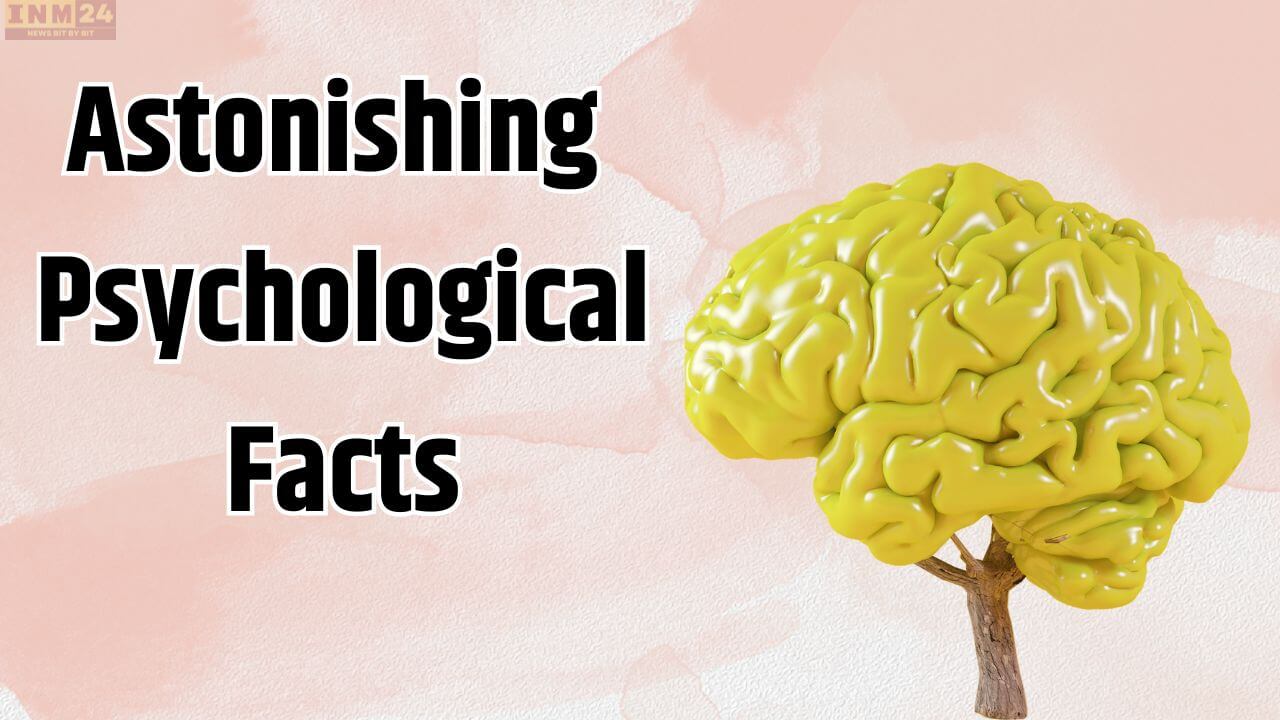Unlocking the Mysteries of the Human Mind Psychology, the scientific study of the human mind and behavior, delves into the intricacies of mental processes, behavior, and mental health. Psychologists, experts in this field, focus on understanding an individual’s thoughts, emotions, behavior, and personality. Across the globe, numerous research studies have unveiled intriguing and bewildering facts in this domain. Today, we explore some astounding facts related to the human brain.
Incredible Psychological Facts Connected to the Human Brain
Brain Storage Capacity
According to Professor Paul Reber from Northwestern University, the human brain can store approximately 2,500,000 gigabytes of information, equivalent to around 300 years of TV shows if measured in terms of data.
Attention Span Decline
The average human attention span is now shorter than that of a goldfish. Over the past decade, our average attention span has decreased by approximately 12 minutes. Presently, human attention span is even less than that of a goldfish.
Weight of the Brain
An adult human brain weighs about three pounds, comparable to the weight of a cantaloupe when measured. It plays a vital role in processing information and controlling bodily functions.
Memory Storage
Memories are stored in the brain in both short-term and long-term capacities simultaneously. While the hippocampus is responsible for short-term memories, recent studies suggest that long-term memories are stored in other parts of the brain.
Vitamin B1 Impact
Vitamin B1, also known as thiamine, can enhance both short-term and long-term memory. This vitamin is crucial for the production of acetylcholine, a neurotransmitter essential for concentration and memory retention.
Information Retention
The speed at which information is delivered can affect its retention. The more effort we put into reaching information, the higher the likelihood of remembering it. Quick access may result in quicker forgetting.
Memory Formation in Womb
Memories begin to form in the womb, as the development of the brain is crucial during this time. Studies suggest that fetal memory recall can occur as early as the first trimester.
Brain’s Energy Consumption
The brain, despite being only 2% of the body’s weight, consumes about 20% of the total oxygen and energy. Neurons, the brain’s cells, demand significant energy, and any imbalance can lead to cognitive dysfunction.
Brain Composition
The brain is composed of approximately 73% water. A mere 2% dehydration can negatively impact attention and memory. Staying adequately hydrated is crucial for optimal cognitive function.
Electricity Production
The human brain generates about 12-25 watts of electricity, sufficient to power a low-wattage light bulb. Neurons in the brain travel at speeds of up to 150 meters per second, enabling swift transmission of information.
Understanding these psychological facts provides a glimpse into the marvels of the human brain. As researchers continue to explore the depths of psychology, more astonishing revelations are likely to emerge, unraveling the mysteries of our intricate cognitive processes.
